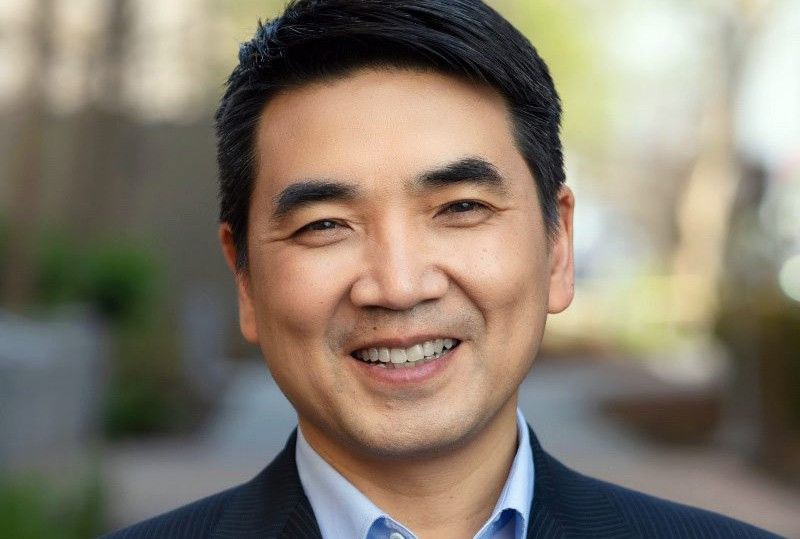How fashion houses and Zoom are helping in the COVID fight

Crisis should bring out kindness, heroism, civic spirit, unity, resourcefulness and moral courage in us human beings, instead of fear, despair or enmity.
One concrete example of immediate help was myPhone maker David Lim of Solid Group, Inc., and son of retired business leader Atty. Elena S. Lim.
When he saw the news about the country’s biggest city, Quezon City, led by the sincere and hardworking Mayor Joy Belmonte, being swamped with the highest number of Covid-19 cases, Lim messaged me at midnight of March 23 about their MyRainbow Place Dormitory in the Tandang Sora area, Quezon City: “We volunteer to allow nurses, volunteers and frontliners to stay in our newly built 105-room dormitory in Tandang Sora for free during this crisis. We shall ask QC government to help coordinate with all hospitals in QC for their stay. This is the least our family can do for all these frontliners risking their lives for us. Stay safe.”
Fashion houses help anti-COVID fight
With fashion boutiques closed, runway shows shut down and supply chains disrupted, fashion industry entrepreneurs are also adjusting to help overcome the global shortages of masks and personal protective equipment (PPEs).
French luxury conglomerate Kering announced that two of its brands, Balenciaga and Yves Saint Laurent, are preparing to manufacture COVID masks. The group has also committed to acquiring three million Chinese masks for French health service, while its largest brand, Gucci, is looking to make and donate 1.1 million masks and 55,000 medical overalls to authorities in hard-hit Italy.
Rival LVMH, which owns Louis Vuitton and Christian Dior, among others, is also leveraging its global supply chain to source 40 million facemasks from China over the next four weeks. Luxury brand Prada has kept a factory open in Perugia and converted it to mask and medical overall production: they will start daily deliveries to hospitals in Tuscany, Italy, of 80,000 overalls and 110,000 masks, starting April 6.
Inditex, the owner of garments brand Zara, plans to soon be stitching hospital scrubs, helping its embattled home country Spain fight the coronavirus. Inditex said last week it was studying converting part of its textile manufacturing capacity in Spain to mass-produce hospital gowns. It added it would make available to Spain its vast logistics and supplier network, especially in China, to “meet Spain’s emergency needs of both medical and textile materials” such as protective masks, gloves, goggles and caps.
Zara/Inditex is led by school dropout, self-made Spanish billionaire Amancio Ortega. For a short period in 2015, Ortega became the world’s wealthiest billionaire, surpassing Bill Gates when his net worth peaked to $80 billion, as Zara's parent company Inditex's stock soared.
Zoom founder is self-made billionaire
I came across award-winning singer/actress Lea Salonga asking on social media who the smart guy was that invented the Zoom app for long-distance video meetings of many people simultaneously worldwide.
A few days ago, when stock market analyst and book author Marvin Germo messaged asking if he could interview me about the economy, tips for small businesses and real estate/stock investing in this lockdown era, when I said I was not going out during this lockdown, he taught me to use Zoom.
This Zoom tech app is indeed so much fun and important now in these tumultuous times, when an estimated three billion people are in some form of community quarantine or lockdown.
Lots of people worldwide, like Lea Salonga, are so grateful to 49-year-old Zoom inventor and CEO Eric Yuan. Due to his technological breakthrough and his publicly listing his enterprise on Nasdaq last year, he is now a billionaire. Right now, Yuan is becoming even richer due to global social distancing.
Unknown to many, the enterprising Yuan is an indefatigable first-generation Chinese immigrant from Taian in the Shandong province of eastern China. Eric Yuan’s Chinese name in Mandarin is Yuan Zheng. He has an inspiring backstory, which should give pause to anti-immigrant politicians like President Donald Trump, who do not realize the importance of persevering immigrants in creating inventions and entrepreneurial start-ups all over the world.
Yuan was a talented math and computer science master’s degree graduate who dreamt of working in Silicon Valley in California, when China and other countries were not yet advanced in technology like right now. He had applied for a US visa repeatedly for two years, was denied eight times but never gave up and eventually was granted a visa on his ninth try. Silicon Valley and the world have since benefited from his tech inventions.
In California in 1997, Yuan worked for the tech firm WebEx, which was acquired by Cisco Systems in 2007, and he became vice president of engineering.
Today, Yuan's shareholding in Zoom is worth US$5.6 billion. He is also named inventor on 11 issued and 20 pending USA patents in real-time collaboration.
Yuan told Authority magazine editor Yitzi Weiner: “I first envisioned Zoom when I was a freshman in college in China and regularly took a 10-hour train ride to visit my girlfriend (who is now my wife). I detested those rides and used to imagine other ways I could visit my girlfriend without traveling — those daydreams eventually became the basis for Zoom.”
* * *
Thanks for your feedback at willsoonflourish@gmail.com! Follow @wilsonleeflores on Instagram, Twitter, and Facebook. Read also https://investment.fwd.com.ph/experts/asia-s-business-leaders-and-what-we-can-learn-from-them.



















